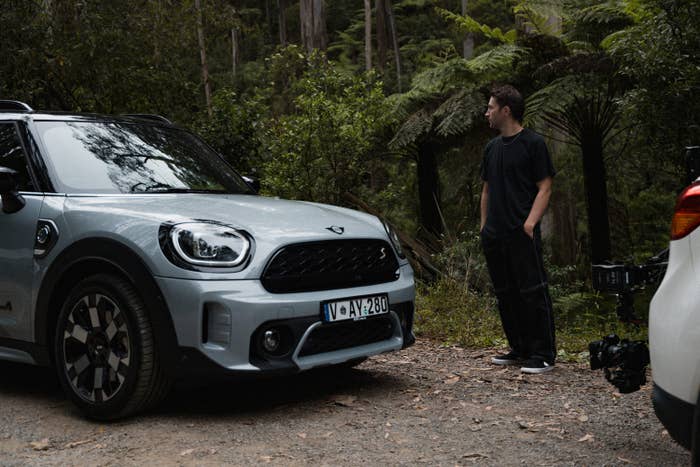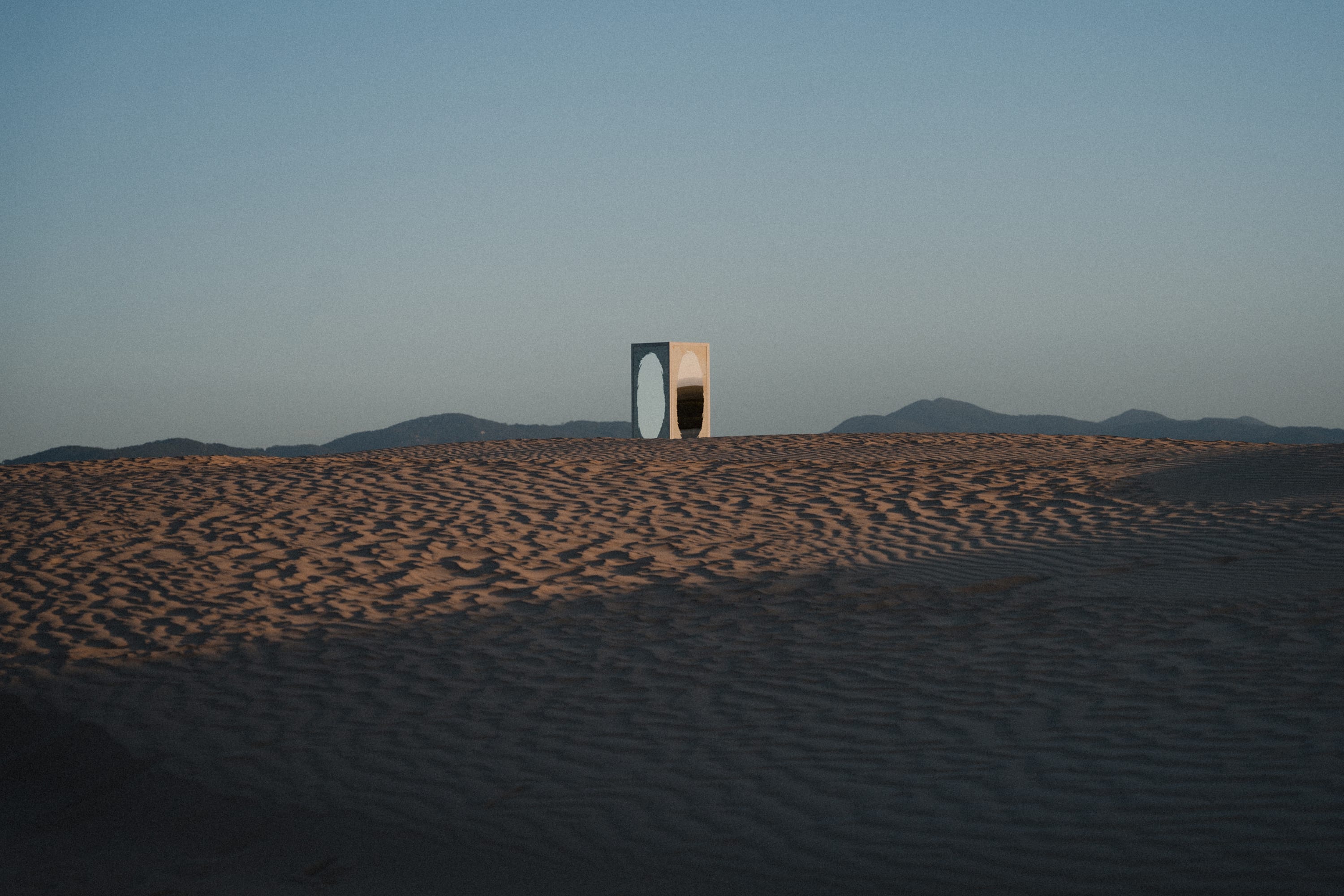What comes to mind when you think of the modern MINI? That it’s a British icon? The descendant of a 60s classic? Maybe even that famous car chase down the steps in The Italian Job?
You may be less aware that the brand invests heavily in sustainability and recycling. Within the next couple of years they’ll have an electric vehicle offering in every one of their market segments and by 2030 will be 100% electrified. MINI’s commitment to sustainability doesn’t stop there—they recycle 99% of the waste produced in their manufacturing, and 15% of the plastic components in their cars are from recycled materials (with an aim to lift this to 25%), as well as up to 40% of the metal.

MINI’s goal is to create a circular economy so that as few resources as possible are wasted throughout the resource extraction and production process, the lifecycle of the cars, and their eventual recycling.
This is how MINI met Melbourne artist and designer Joshua Space. From his Collingwood studio, Joshua works across fashion, textiles, furniture and sculpture.
“I work in a lot of mediums and their common thread is sustainable thinking, which is why I was drawn to working with MINI,” he says.
“When the partnership first came up, the thing that I thought about most was going back to MINI’s original designer, Alec Issigonis. His brief was to redesign, or reimagine, the car in a time the world was facing an oil crisis (the Suez Crisis of 1956). Which is fitting to our own time also, right? There’s a climate crisis that we’re all dealing with, and people are trying to design solutions for it.”

“So MINI was born out of challenging the existing norm. At a time when cars were big, fuel guzzling monsters, Alec’s mission was to make something that could challenge that. I think it was sustainable thinking before the word really existed. That’s good design, right?”
Inspired by MINI and extending his own practice, Joshua created the Void Mirror, a four-sided reflective sculpture partially made from recycled plastics.
“In my own work, the materials that I find the most interesting are those that are a challenge to work with. I’m bringing some of those materials, like recycled plastics, into contexts like mirrors or tables or chairs. And then highlighting those elements rather than hiding them. That’s important to me: really making it obvious where these recycled materials have come from.”

“At the core of the process was reflection. Thinking about how our inner lives are a two-way mirror onto the world—our environment shapes us but we also shape our environment.”
The Void Mirror is made from recycled plastics. Plastics that are found in things like car bumpers, bottles, lids and a million consumer goods. The mirror reflects our image back at us but it also shows us what we consume.
Like MINI, Joshua has been thinking hard about the lifecycle of his objects.
“I’m concentrating on making things that have a long lifespan. I think of them almost as generational pieces. I’m thinking about where they might end up and what value they add to a space, to someone’s life.”

Much like MINI’s circular economy, in Joshua’s work that’s a closed loop with three parts: the careful selection of sustainable, recycled materials to produce a quality object or artwork that will serve beautifully for years to come and then, if it should need to be retired, lead to a disposable path for its materials.
“The materials can be broken back down, recycled, all this recycled plastic can just run back into something or I can reprocess it back into another object.”
“A lot of it is about experimenting and trialling, especially on a smaller creative scale. I think bigger organisations have a responsibility to put in the infrastructure to make sure those things really happen, which is why it’s great to see MINI leading the way on this.”

